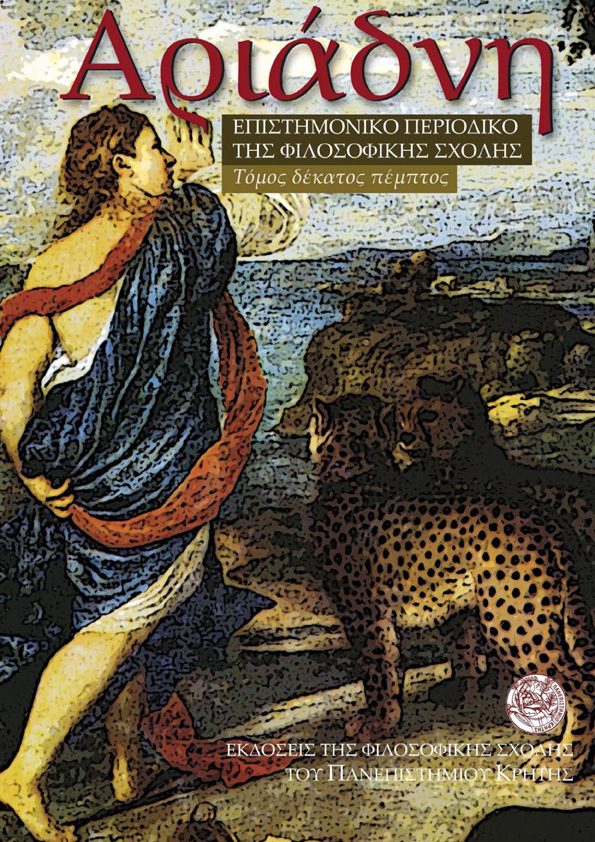History or Aesthetics? Greek Academic Institutions placed before the Canon
DOI:
https://doi.org/10.26248/ariadne.v15i0.925Abstract
THIS ARTICLE - which is not strictly speaking a piece of scholarly research but rather a contribution or intervention to an on-going academic dialogue - describes the current state of affairs as regards teaching Modern Greek Literature at universities. Rather than teaching aesthetically accomplished works, we tend to focus mostly οn texts or periods that make a contribution to our students' familiarization with Greek collective identity. This seems to be due to: a) a historically oriented notion of literary studies; b) the limited number of highly artistic Greek prose works; c) the lack of a Modern Greek canon. Οn the other hand, the condition of most students might be best described as 'aesthetic illiteracy'. The suggestion made in this article is to orientate our teaching goals towards the cultivation of artistic taste and thus shift our curriculum away from the collective idea of tradition towards the formulation and teaching of a Greek canon, along with major European works.
Downloads
Published
How to Cite
Issue
Section
License
Authors retain copyright and grant the journal right of first publication with the work simultaneously licensed under a Creative Commons Attribution-NonCommercial-ShareAlike 4.0 International License that allows others free use of the work for non-commercial purposes as long as the author/s and the journal are attributed properly and the new creations are licensed under identical terms (Creative Commons Attribution-NonCommercial-ShareAlike 4.0 International License).


